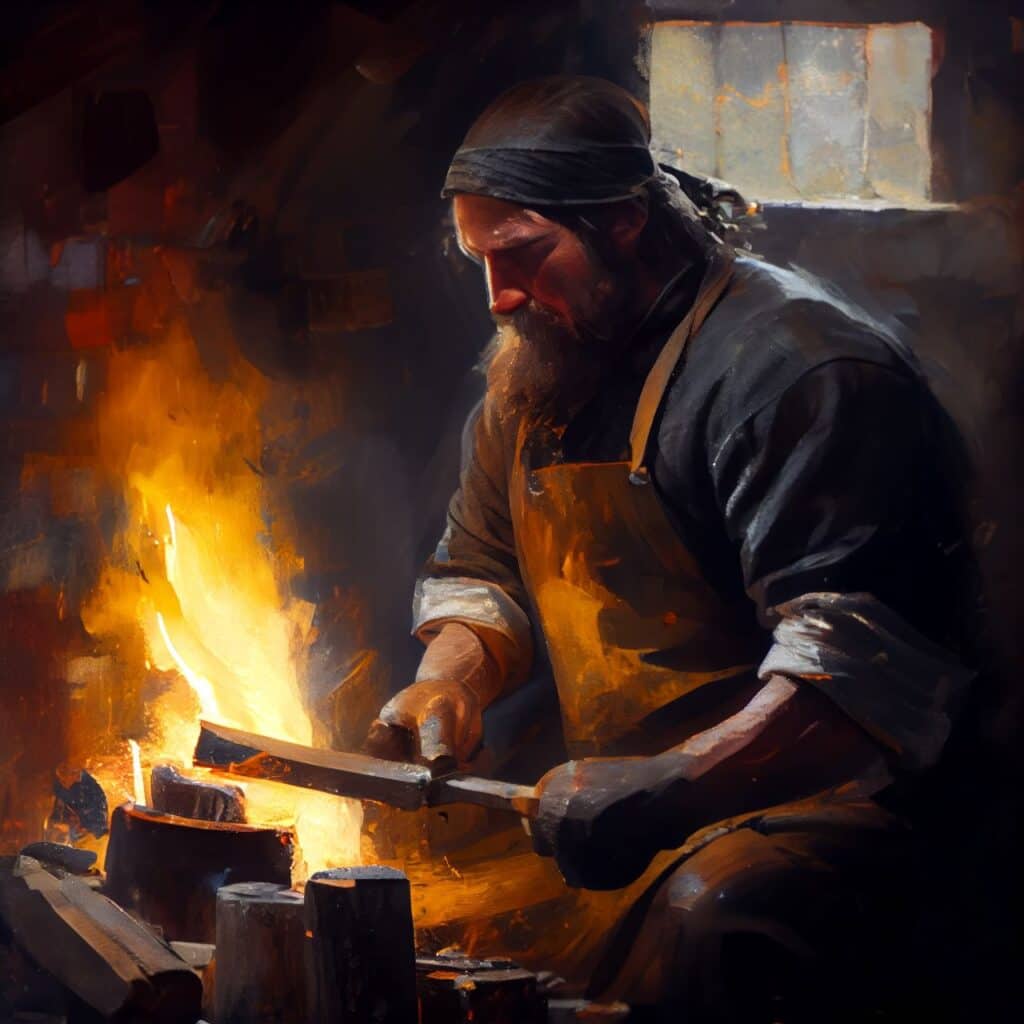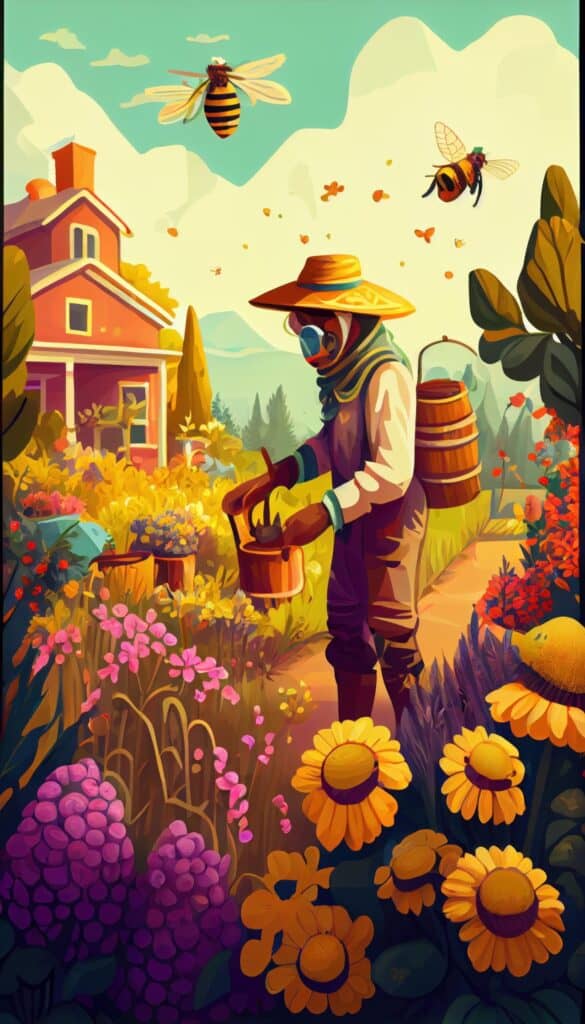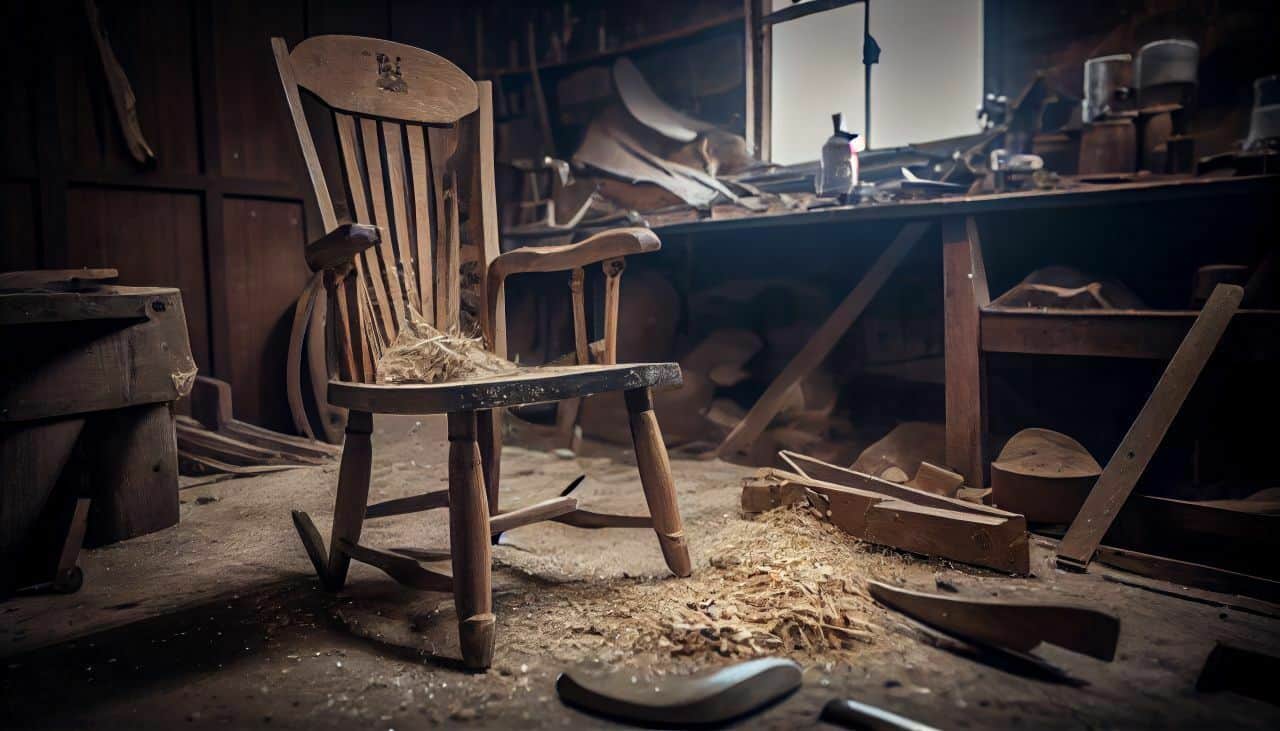Living in the modern era, it is key to recall the skills of our ancestors. These have been handed down through generations. Numerous life skills that were once considered basic knowledge can still be used nowadays. They have been verified throughout the years and remain very beneficial.
In this article, we will look at what these old-fashioned skills are and how you can begin studying and exercising them.
Definition of Old-Fashioned Skills
The phrase ‘old-fashioned skills’ refers to traditional knowledge passed down through generations, still relevant in our modern world. These skills can be related to self-sufficiency, such as woodworking or knitting. Also, activities like cooking from scratch or home repair, which don’t depend on machines or tech.
These skills can help us learn how to live an old-fashioned lifestyle, while being sustainable and independent. They also bring nostalgia and emotional comfort, helpful when dealing with life stresses.
In short, old-fashioned skills are sources of knowledge that have been around for generations, still valuable today. These time-honored practices help us become independent, while connecting to past ways of life. Many find these skills deeply rewarding.
Benefits of Learning Old-Fashioned Skills

Learning old-fashioned skills is a great way to become self-sufficient and sustainable. Knowing these skills can give you more resilience and joy in life. Here’s why it’s so important:
1) Self Reliance: Being able to rely on yourself for everyday tasks like gardening, repairing, cooking and baking bread. You’ll no longer need to depend on others for basic needs.
2) Nutrition: Making meals from scratch so you know which foods are nutritious. You’ll understand healthful eating better with traditional recipes using fewer processed ingredients.
3) Financial Stability: These skills can help increase savings. You can grow your own food or mend items instead of buying new ones. You can even make money with animal husbandry, upcycling and crafts at markets.
4) Preserving Traditions: Practicing traditional arts keeps customs alive. It also opens up chances to learn from community members or workshops.
5) Skills That Empower: You’ll have autonomy knowing how to sew clothes that fit, mend appliances, grow vegetables, build furniture, and cure ailments with herbs. All this leads to financial and personal independence!
Old-Fashioned Skills for Sustainable Living
Old-fashioned living is on the up and up in today’s modern world. Not just for sustainability and being eco-friendly, but also for a more meaningful and purposeful life. With the right know-how, anyone can learn to live traditionally and relish the simple life.
In this article, we’ll take a look at some key old-fashioned skills that can assist you to live more sustainably in the modern world.
Gardening
Gardening is the key to living sustainably. Growing your own food means fresh produce without chemicals, plus you reduce the need for transportation.
When starting out, remember to prepare a space free of weeds or pests. You need to know which plants work in different seasons and climates, and what nutrients they need. Don’t forget irrigation systems and soil types!
With dedication, anyone can learn to garden. Check online for helpful info about soil, plants, and composting. Organizations offer workshops on topics like saving seeds and plant propagation — great for sustainable living.
Cooking
Cooking is essential for success in modern living. It may seem outdated, but it can save you money and offer job or business opportunities. It can help set your household apart. Learn the basics – like making stocks, stews, and porridges – and explore different cuisines.
Cooking is not just about delicious meals. It’s about bonding, discovering urban legends, trying new flavors, and understanding cultures through food. It’s about experimenting with seasonings and combinations. Plus, it’s a great way to express creativity through presentations of both savory and sweet dishes.
Sewing
Sewing is an old-fashioned skill that has huge value to help us live sustainably in the modern world. It may look simple, but there’s great satisfaction when you make something with your hands.
You can use sewing for many things – like mending clothes, creating toys, or making textiles for a special occasion. It can also save money and bring personalization to the items you make.
Plus, it connects us to our past. Many generations before us used to craft their own clothing when it wasn’t so easy to buy.
To learn sewing, you need patience, practice, and dedication. There are online tutorials or in-person classes with experienced teachers who can help. Research the type of sewing machine you need, then get the right fabric and materials for your first projects.
Canning
Canning is an old way of preserving food. Put cooked food in sealed containers, with no air or moisture, to stop it spoiling. You can can fruit, veggies and other foods. It’s great for off-grid or rural living, and can help your garden produce last longer.
You need either a water bath or pressure cooker, depending on the food. But be careful – do it wrong, and there are health risks. Follow USDA guidelines for safe canning.
If you want to try canning, get the right info and equipment. Many home stores sell kits for canning, with preservatives, jars and lids. Or, look online for tutorials and recipes.
Mastering canning will give you better access to healthy food, reduce costs and let you enjoy fresh ingredients all year round.
Carpentry
Carpentry is a great skill to have if you want to live off the grid. You can construct buildings, furniture, and other items. Plus, you can repair existing structures too.
Start small, like a chair or a table. This will help you build bigger projects. Make sure you use the right tools like saws, chisels, planes, and hammers. This will make your work accurate and can save time.
Woodworking requires skills like sawing, planing, and hammering. Learn them correctly for carpentry success! Ask someone experienced for help.
It’s tough at first, but practice makes perfect. You’ll be so happy when you master carpentry – living an old-fashioned lifestyle off the grid!
Animal Husbandry
Animal husbandry is a kind of sustainable living. It means keeping and caring for animals like poultry, cows, goats and sheep, horses, and swine. People have been doing this since ancient times.
It gives economic freedom and self-sufficiency, by giving fresh meat, milk, eggs, and other products that can be sold or used at home. It also helps organic farming, by improving soil fertility with manure.
From an animal’s point of view, living in a healthy home environment makes them feel better and reduces stress. This is especially true for large animals like cows, which need lots of space when they are being fed and looked after. Even people with small homesteads can do animal husbandry on a smaller scale; keeping chickens for eggs or rabbits can give you food more quickly, while using up little space.
When you do animal husbandry as sustainable living, you should learn the best practices for looking after animals, and the laws for each kind of animal. You should treat them humanely, giving them choices of food, good housing, and the chance to exercise, while avoiding any pain or suffering. You should use old-fashioned skills, talking to neighbours who can help with technical things like health problems, to manage your livestock properly.
How to Learn Old-Fashioned Skills
Technology advances rapidly and automation is on the rise. Knowing how to sew and build a fire can be beneficial for living sustainably.
This article looks at how to learn old-fashioned skills and why they are important in today’s world.
Take a Class or Workshop
You can take a traditional class or workshop to learn old-fashioned skills. Universities, colleges and adult learning centers offer classes where you can make clothes with hand-powered looms and spinning wheels, raise livestock and garden, work with natural stone and timber, blacksmithing tools and more. Or, join a living history group to teach old-time skills. It’s not just about the skills – it’s about understanding the culture too.
If you can’t attend an organized class or workshop, don’t worry! You can learn old-fashioned skills on your own. There are lots of online resources like websites and YouTube channels dedicated to traditional handicrafts. You can even find books about the history of certain crafts and the people who practiced them. Researching traditional arts in books or online will help you replicate them in your own time.
Read Books or Watch Videos
If you’re just starting out or want to dig deep into old-fashioned skills, books and videos are great places to begin. There’s a load of material available, like books, magazines, websites, tutorials and video courses. For newbies and modern homesteaders, there are classic resources and innovative guides.
Reading books can be a great way to gain knowledge of the past. Look for ones about blacksmithing, spinning wool, weaving fabric, traditional cookery, local communities or genealogy.
Videos are also good for learning old-fashioned skills. Tutorials may be about making soap, mending clothes, rope making, etc. A bonus is that you can replay if something was missed. So you have more time for practising!
Find a Mentor
If you want to learn old-fashioned skills, find a Mentor. They should be an expert with knowledge and experience. A good Mentor can save lots of time and mistakes. Ask around local businesses or online forums – you may find someone in your area.
Mentorship has the advantage of coaching and advice from an expert directly involved in their craft. Ask about techniques for preparing, cooking, storing, preserving food, weaving, sewing, homesteads or farming.
No matter what activities take your interest, a Mentor is invaluable. They can pass on techniques perfected over generations, as well as safety issues for tools like knives or machetes.
Practice and Experiment
Practice is a great way to learn old-fashioned skills. If possible, find ways to use them in your day-to-day. For example, sew a skirt or shirt to get familiar with fabric. Try recipes and ingredients to learn cooking. Bake bread or make soap to practice hands-on.
If you’re not ready to do real-life tasks, make small projects. Paper dolls or quilts are good for handicrafts newbies. Bake scones to reinforce the basics of baking.
Remember that applying old-fashioned skills takes time, patience and dedication. But, it’s worth it – you’ll feel proud of what you can do yourself!
Motivation and Inspiration
We dwell in a modern world. Yet, we often yearn for the traditional skills that offered simplicity and cheer to our daily lives. If we wish to be more independent, or make a difference in our families, communities, or even the globe, there are still old-time skills that can bring us a feeling of accomplishment.
In this section, we will explore motivation and stimulation for learning these old-fashioned skills in a current world.
Embrace the Simplicity of Old-Fashioned Living
Embracing ‘old-fashioned living’ can provide a break from our fast-paced lives. It involves practicing certain skills or crafts that aren’t part of modern life. These skills offer sustainable solutions, like gardening for organic produce and reducing waste by making homemade meals instead of takeout.
Learning these old-fashioned skills builds self confidence and resilience. Plus, it can give insight into the past and its way of life. Even a novice can pick up these skills with dedication! We don’t have to do all activities related to old-fashioned living to appreciate its values.
By learning old fashioned ways, we can become sustainable stewards of ourselves and the planet. We can pass down wisdom from one generation to the next. Jam making, joinery, and other activities can be enjoyable too!
Appreciate the Value of Old-Fashioned Skills
Skills from past generations can help maintain a good quality of life nowadays. Technology has progressed, but the importance of manual labor has not changed. It can be hard for those who are used to automation to learn old-fashioned skills. But it is worth the effort as these skills give us independence and strength.
We should teach children basic life skills such as cooking, cleaning, gardening, and carpentry from an early age. Even if they don’t need to use these skills, the knowledge gives them assurance that they can do so if required.
Motivation is critical when it comes to mastering old-fashioned skills – even for grown-ups! Learning to sew or build furniture is not just about producing something tangible at the end of a project. It is also about taking pleasure in self-reliance and autonomy found from learning how things were done centuries ago. There is a natural beauty in continuing traditions that seems like going back in time while gaining insight on what’s essential now.
Cultivate Self-Reliance
Cultivating self-reliance is vital for living sustainably. Knowing when to rely on oneself is key in many scenarios. This leads to improved problem-solving, increased self-strength, and the ability to depend on one’s own abilities in tough times.
Self-reliance begins with knowing yourself and what you can do. Take stock of your skills and talents. This will help you understand your strengths and weaknesses. With this knowledge, you can hone existing skills or gain new ones that will be beneficial in the long run. When presented with challenges or opportunities, consider the pros and cons, then set achievable short-term objectives.
Look for motivation from mentors and trusted commentators. Listen to their words as they can provide insights into how others approach similar situations and give admirable examples of problem solving methods. Stay committed. If something seems too difficult, take a step back and reassess the situation with fresh perspective, before abandoning it. This will allow fresh approaches that remain within reach of achievement. With problem solving skills, self-reliance can be maintained even in tough situations.
Conclusion

This article has focused on the advantages of living an old-fashioned life in a modern world. I’ve discussed how bread-baking, gardening, repair and maintenance and other such skills can help lead a more sustainable life.
I have explored the benefits of learning these skills, such as creating connection and rapport with family and friends, saving money, etc.
Finally, I have shared some advice on how to learn these life skills.
Summary of Benefits
Living with old-fashioned skills brings a feeling of contentment and connection to the past. Knowing how to do simple tasks like baking, gardening, or mending clothes can boost your confidence, save money, and lessen your environmental impact. Being able to use these old-fashioned skills in a modern world makes you more self-reliant and independent. These skills also serve as a form of knowledge that can be passed down from one generation to the next.
Learning to live an old-fashioned lifestyle has many rewards beyond the tangible benefits. With each skill you learn, you gain inner peace from taking care of yourself and becoming skilled. Taking this challenge is beneficial for you and can bring people in your community closer together by teaching and learning from each other. There is no better time than now to learn some old-fashioned skills!
Final Thoughts
Old-fashioned skills are more important than ever in this modern, volatile world. Learning these life skills can free us from relying on the unpredictable market economy. Examples include cooking from scratch, gardening, sewing and making things from recycled materials.
This doesn’t mean living totally off the grid though – smartphones, computers and other modern luxuries can help us research and stay connected. Simple living also has many psychological and spiritual benefits.
We can learn from the older generations, or attend workshops like “living off the grid” or candle making. Social media is a great place for tutorials on simple trades.
Ultimately, it’s important to be true to ourselves, and find inner confidence. This will bring more fulfilment than material gratification.


